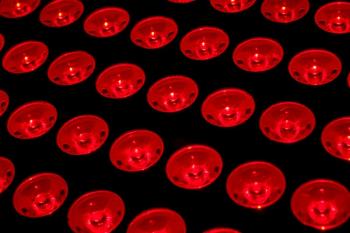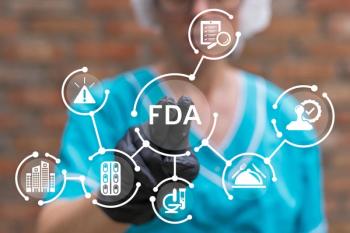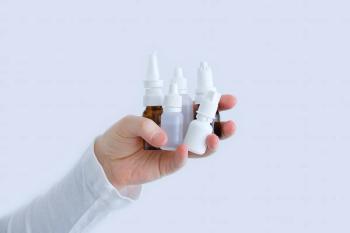
EyeCon celebrates the grit of industry evolution
EyeCon chair Kelly K. Nichols, OD, PhD, MPH, FAAO, shares some of her favorite moments throughout her career and what inspires her to continue pushing the industry forward.
EyeCon 2024 will be here before long, and co-chair Kelly K. Nichols, OD, MPH, PhD, FAAO, sat down with Optometry Times to discuss her lifelong dedication to dry eye research, commitment to education, and allegiance to EyeCon. Along with Peter J. McDonnell, MD; Tosin U. Smith, MD; and A. Paul Chous, OD, MA, FAAO, Nichols will chair the 4th annual EyeCon on September 27-28, 2024, in Fort Lauderdale, Florida.
Note: This transcript has been edited for clarity and length.
Emily Kaiser Maharjan:
I know that your passion is in dry eye disease. And you've done a lot of really important research on the subject across all of your career. Do you have any favorite studies or pet projects that you remember particularly fondly?
Kelly K. Nichols, OD, MPH, PhD, FAAO:
My whole career in dry eye kind of has a trajectory, when I first started, there weren't very many optometrists that were doing work in dry eye, so it was a good time to kind of get lucky and pick a topic in which there was a lot of work to be done, because then that led to many productive years of research in a variety of different ways.
My original work was with postmenopausal women that were involved in the Women's Health Initiative. And so that's a big, it was a big study that was run across the country. And I was fortunate to see patients as one of the clinical sites at Ohio State University. That was fun to do a smaller project that is part of this big, big study that was ongoing. So that was notable. And then more recently, I think I've had the chance to work with a number of startup companies who are starting out to get therapeutics approved. And sometimes I've helped with study design, and sometimes I've been a clinical site. But it's really neat to see those go through fruition, especially if it's approved, because that's something that'll be out there for docs to use in their toolbox to help take care of patients better. I've liked that sort of arc in the understanding dry eye, but then, importantly, getting more therapeutics for patients.
Kaiser Maharjan:
You've been extensively published throughout your career. How do you feel that research has changed? And how would you like to see it evolve even further?
Nichols:
Yeah, it's interesting, because when I first started, there was one paper that talked about dry eye. It was called the NEI industry report on clinical trials in dry eye; it was published in 1995. And that was about the time I was starting my research. It had some like forward-looking statements--we now call them unanswered question--in the conclusion, which was really only one paragraph. There were probably four or five different things that I highlighted in that paragraph that were items to be looked at, which then kept me busy for many years in trying to add some literature to address those issues and concerns. And there were a lot of other people who were doing the same.
But then following that, the Tear Film and Ocular Surface Society has had many of these similar white papers written about dry eye the DEWS workshops. Now it's in its third phase. There'll be a DEWS III reported out soon, probably in about a year. Through all those, you just see the significant numbers of people doing dry eye research, a significant number of papers being published in dry eye, MGD, and other ocular surface disease, and it's just grown exponentially over these years. And I think that's really remarkable that you can kind of see a topic go from being in its infancy to now, when it's just so mainstream.
Kaiser Maharjan:
Absolutely, it's wild to see kind of the sprawling landscape that we're in right now with dry eye.
Nichols:
I love that there are practices out there, that are dry eye only or dry eye mostly practices because back in my early days, there just weren't that many people doing anything [for patients with dry eye], and there weren't very many options. So today to have so many options and have practices that are dedicated to ocular surface disease is wonderful, because I know where it came from.
Kaiser Maharjan:
You are also an educator, most notably serving as the dean of the University of Alabama, at Birmingham School of Optometry for the past 10 years. How does education and your students inspire you both in your research and just as an optometrist?
Nichols:
In this role, I'm so fortunate to get to see students go through the process, and then come out on the other side as alumnus of the school and then see how they're doing in practice. And that's probably the most delightful part of it is just to be somehow linked to their education. Of course, the people who should get all the credit for that are the faculty and staff who are with them day in day out, training them. I teach a class in the first year, but that's not heavy lifting compared to what our faculty and staff do. But I think collectively, everybody plays a role. For me, the events like white coat ceremony, graduation, and then when they write back to us and tell us what they're doing are very special. I see them winning awards across the nation and things like that. Those are incredible points of pride, because they are some output of what our school can do. And that makes me really personally happy.
Kaiser Maharjan:
So what keeps you coming back year after year to chair EyeCon?
Nichols:
We've seen kind of growth over the years, the first year was virtual because of where we were in life. And then we this will be our third in-person meeting. And I think every year we've set to the same theme of having the joint panels on the first day and then having separate panels in the day where we break out to optometry and ophthalmology. Having that interaction, again, in between optometry and ophthalmology has been really fantastic. So that keeps me coming back.
Also, the caliber of the speakers! We have somehow managed to get some of the brightest and best clinical minds to be on stage and panels. It's groups of people that might not normally be in a panel together. I do really believe that the audiences prefer a panel discussion. Because of that, it's not just one or two people that are providing you a whole day's worth of education; you really do get 1 hour's worth of topic by some pretty amazing people. It is a fast-paced, fun panel discussion with amazing speakers. And so that keeps me coming back as well to be chair because I know that every year is going to have that level of quality.
Newsletter
Want more insights like this? Subscribe to Optometry Times and get clinical pearls and practice tips delivered straight to your inbox.




























